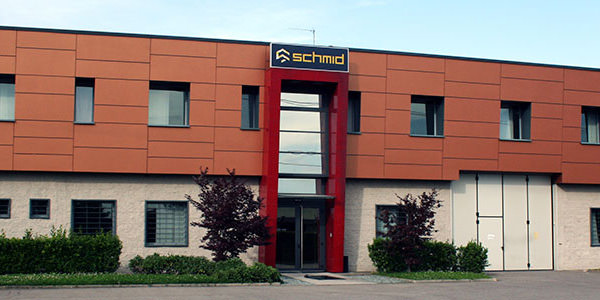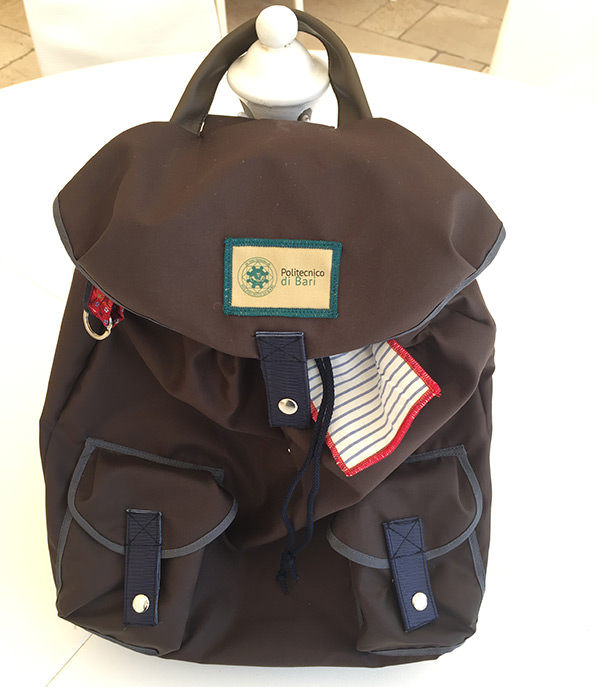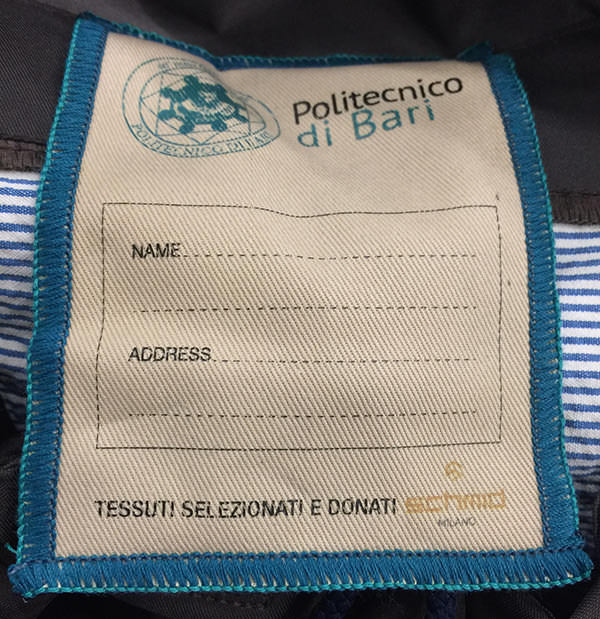Schmid’s fabrics for the backpacks of the university Politecnico di Bari
Schmid/Made in Carcere backpacks for the students of the Apulian university
Corporate social responsibility has been for the past years a matter of great important for Schmid. From the auction of vintage fabrics held in November to fund the Lombard food bank Banco Alimentare della Lombardia, to the contest held to give young European stylists the opportunity to win a prize and an internship in a company, and of course the collaboration with Made in Carcere (Made in Prison). Schmid believes, and has been investing for years, in these initiatives to proactively contribute to the issue of corporate social responsability.

The decision to collaborate with Made in Carcere
The latest of these projects sees Schmid working with Made in Carcere, a cooperative that combats recidivism among former female inmates by teaching them a job in the prisons of Lecce, Bari and Trani. “A project with a concrete purpose. A person who stops being a criminal is a plus for society as a whole. In this way, the value of the donation has a multiplying factor that is practically infinite for a person who is rehabilitated through labour,” said chief executive Paolo Ciccarelli.

Schmid/Made in Carcere backpacks
About 600 backpacks made by inmates with material given by Schmid were bought by Politecnico di Bari and distributed to students during the opening of the academic year. An ethical giveaway made entirely with fabrics and material provided by Schmid.
Some numbers: 1,700 metres of tulle fabric, 2,000 metres of denim, 1,500 metres of lycra and many other materials are part of the more than 6,000 metres of fabric that Schmid gave to Made in Carcere and that have so far been used to make the biggest Bag in the world, the university backpacks and many other items. These initiatives are increasing becoming cult objects and beacons, as well as a means to boost the visibility of the rehabilitation project for female inmates.
What next? “Schmid takes social issues to heart,” said Paolo Ciccarelli. “It intends to continue its collaboration side to side with the organisations engaged in these battles. For this reason, all options are open for the future.”

